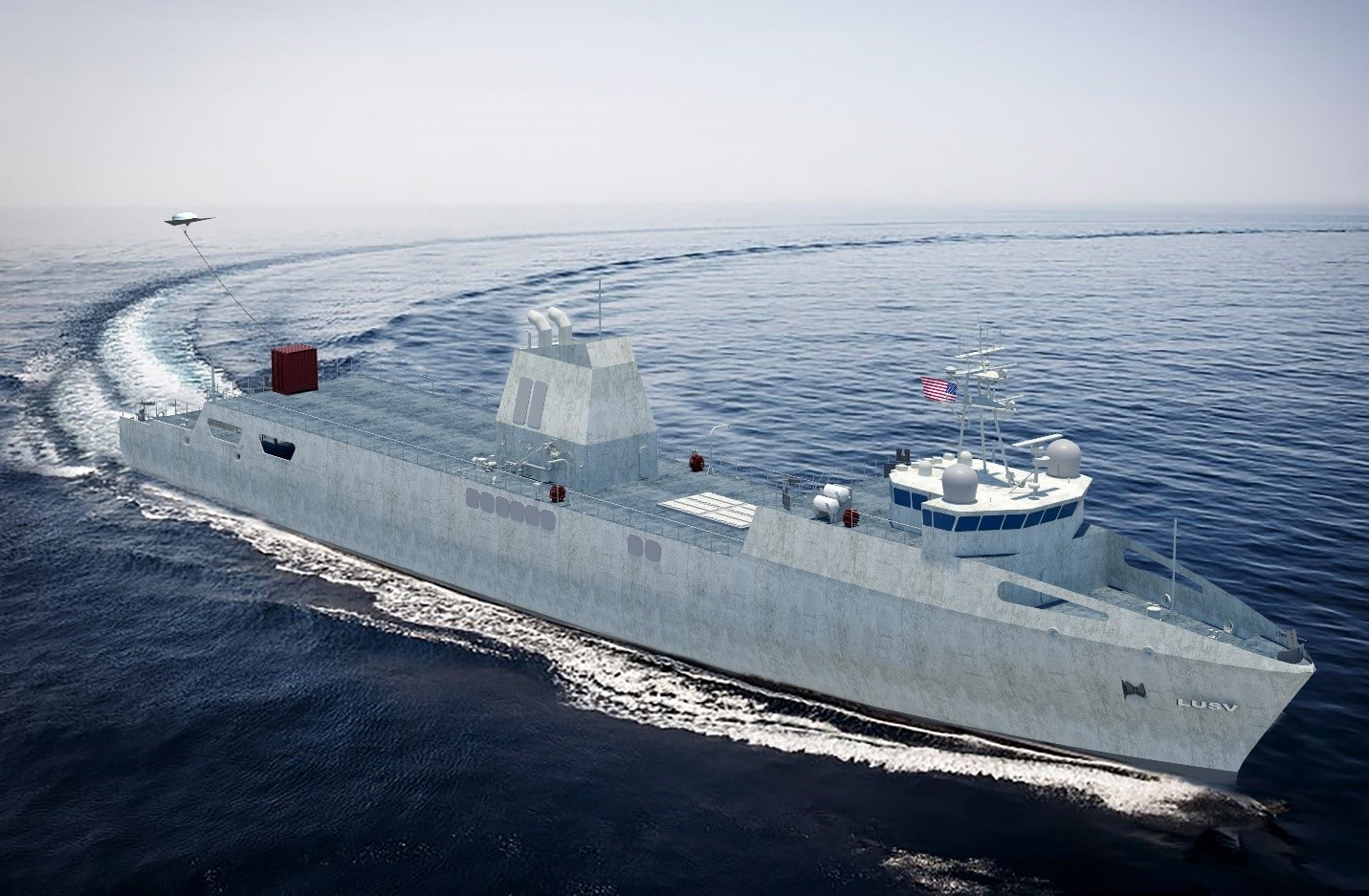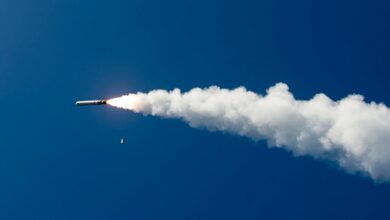Four Firms Strengthen Bids for US Navy’s Large Unmanned Vessel Program
The US Navy announced Friday that four of the six contenders for its Large Unmanned Surface Vessel (LUSV) program have achieved a significant milestone ahead of formal development.
Bollinger Shipyards, Fincantieri Marinette Marine, Huntington Ingalls Industries (HII), and Gibbs & Cox have all passed 720-hour engine reliability tests with their solutions.
According to the service, the engine demonstrations are critical to the program because only the companies with qualified LUSV engine systems can move forward.
Bollinger was the first to finish engine testing after demonstrating the mechanical reliability of its proposed 1550-kW Caterpillar 3512C model engine.
Fincantieri and Gibbs & Cox followed suit with their Caterpillar 2300-kW 3516 and QSK95 diesel engines, respectively.
HII achieved the milestone after testing the MTU 20V 4000 M93L engine in partnership with the US Coast Guard.
Of the six firms selected for the program, only Lockheed Martin and Austal were not mentioned in the announcement, potentially indicating they have yet to complete their own engine reliability tests.
‘One Step Closer’
The LUSV program is the US Navy’s way to field a state-of-the-art autonomous vessel that is 200 to 300 feet (61 to 91 meters) long, or a third of the size of existing navy frigates.
The drone ship will be used to support various missions, including electronic warfare, anti-surface warfare, and land-strike warfare.
Program manager Capt. Scot Searles said the successful completion of engine reliability tests brings all contenders a step closer to delivering the much-awaited LUSV to the US Navy.
He also acknowledged the hard work and expertise of the Navy team and its industry partners, which led to the success of the rigorous engine trials.
“We are pleased with the results and look forward to continuing our work with industry to forge the future Hybrid Fleet,” Searles concluded.












